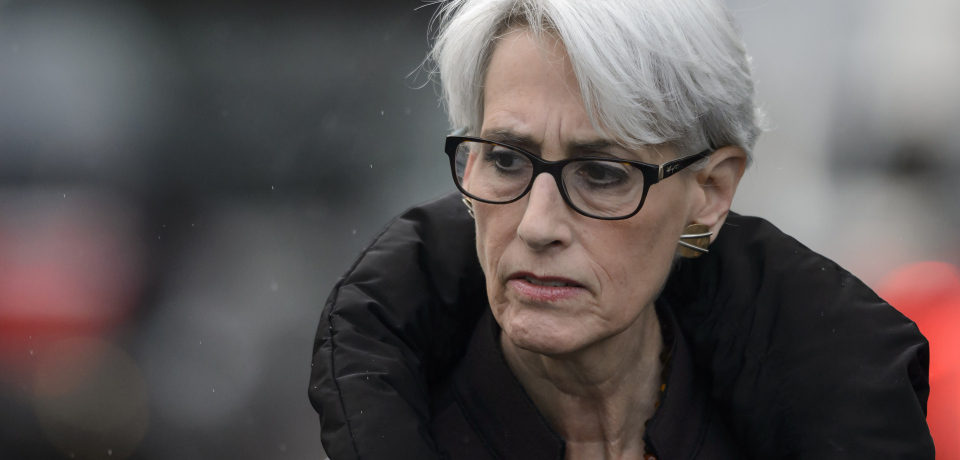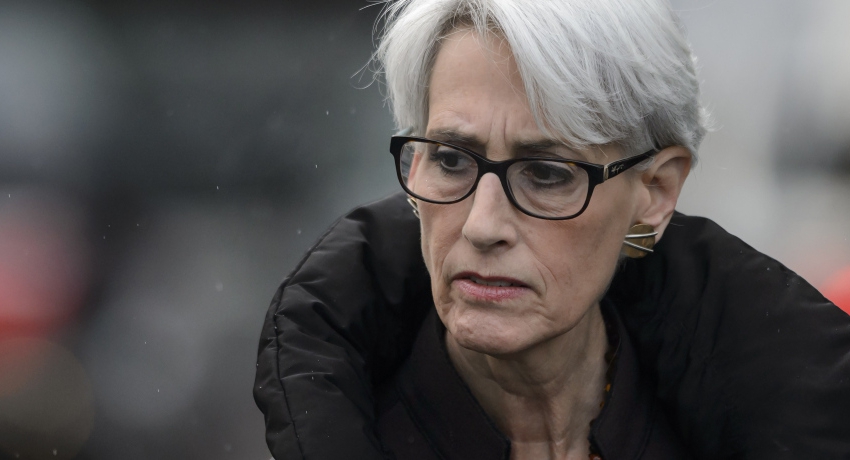 US Under Secretary of State for Political Affairs Wendy Sherman leaves after a meeting on February 22, 2015 in Geneva. Washington and Tehran's top diplomats sat down again on February 23 for talks on Iran's nuclear program as they struggled to narrow gaps ahead of a key deadline. AFP PHOTO / FABRICE COFFRINI (Photo credit should read FABRICE COFFRINI/AFP/Getty Images)[/caption]
US Under Secretary of State for Political Affairs Wendy Sherman leaves after a meeting on February 22, 2015 in Geneva. Washington and Tehran's top diplomats sat down again on February 23 for talks on Iran's nuclear program as they struggled to narrow gaps ahead of a key deadline. AFP PHOTO / FABRICE COFFRINI (Photo credit should read FABRICE COFFRINI/AFP/Getty Images)[/caption]President Barack Obamas top negotiator to the Iran nuclear talks pushed back against her critics on Capitol Hill, arguing that the world would rally behind an agreement if the two sides manage to hammer out a deal this year.
If we were able to do it, the world would judge it as a good thing that it is the way that will ensure that Iran cannot acquire a nuclear weapon and no other pathway will get us there, Wendy Sherman, the undersecretary of state for political affairs, told an audience at the Carnegie Endowment for International Peace on Friday.
Sherman was responding to a new report that Republicans in Congress have acknowledged they cannot prevent the president from implementing a deal during his time in office. But instead of giving up, they will telegraph to Irans supreme leader their intentions to blow up a deal after Obama leaves office in 2016 a plan designed to make Iran walk away from the table.
The supreme leader has said publicly that he is concerned that if he enters into an agreement that the very next president is going to change that agreement, Republican Bob Corker, the chairman of the Senate Foreign Relations Committee, told Bloomberg journalists.
Sherman declined to speculate if a GOP threat of that nature would prevent the six world powers the so-called P5+1 from striking a deal with Tehran by the July 1 deadline, but the Obama administration will clearly need to convince Irans supreme leader, Ayatollah Ali Khamenei, that any comprehensive deal will survive past the Obama era regardless of whether the next president is a Democrat or a Republican.
As you probably will not be surprised, Im not going to say a great deal, Sherman said. Whenever one is in the middle of negotiation, there are lots of voices saying lots of things.
Bob Einhorn, a former U.S. nuclear negotiator under Obama and a senior fellow at the Brookings Institution, told Foreign Policy that the post-2016 fate of a nuclear deal depends on Irans compliance.
As it stands, the White House is reportedly trying to negotiate a 15-year-deal with Tehran that would gradually lift restrictions on Irans nuclear program if it complies with the terms of a deal the details of which are still being hammered out. During that time, the White House would temporarily lift some sanctions on Iran unilaterally, but the completion of any final deal would require a vote in Congress to lift sanctions permanently. The United Nations has its own sanctions on Iran, and lifting them would be equally difficult and time-consuming.
The reality is the president can conclude these negotiations and he can begin implementing it even if the Republican majority is opposed, Einhorn said. Then what happens with the next administration? A large part of it depends on, is the deal working? Are they complying?
If Iranians are not showing a good faith effort, the deal would likely collapse under the intense pressure of pro-Israel voices in Washington no matter which party controls the White House.
But if the Iranians are complying with their agreements and the rest of the P5+1 Germany, France, Britain, Russia and China support keeping the deal in place, Einhorn said that any American leader would likely feel pressure to keep the implementation process going.
If it looks like theyre complying and things are working out, I dont care if its Jeb Bush or Hillary Clinton, he said. I think the president, whoever it is, is not going to want to say, ok lets upset the chessboard. Lets see what happens.
By Foreign Policy











